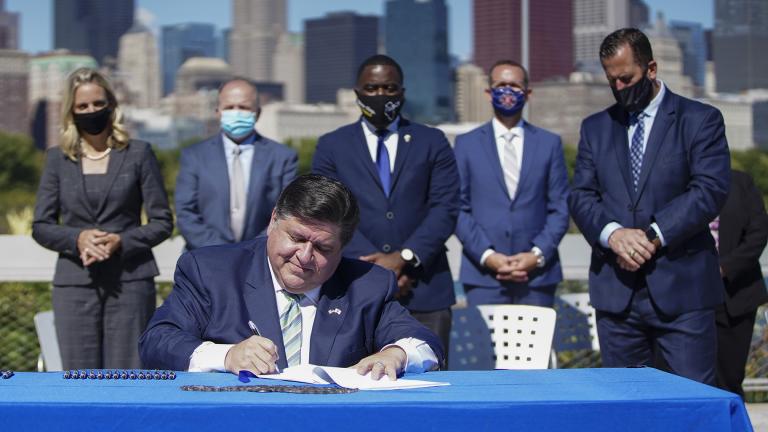After years of deliberations, the State of Illinois recently passed its most sweeping energy and climate bill in a generation. The Climate and Equitable Jobs Act (CEJA), also known as SB2408. The bill is the result of years of deliberations between utilities, municipalities, energy suppliers and environmental stakeholders.
The result is a bill that puts Illinois on a path away from traditional fossil fuels to achieve a 100% carbon-free power sector by 2045, while prioritizing environmental justice as well. The bill was signed into law by Governor J.B. Pritzker on Sept. 15, in a signing ceremony outside of Shedd Aquarium in Chicago.
Clean Transportation, Clean Air & Beneficial Electrification
A focus of the bill is easing and incentivizing the transition to electric vehicles (EVs). The bill sets the ambitious goal of bringing 1 million EVs to the roads of Illinois by 2030. The bill also establishes new incentives for electric vehicle purchases as well as EV charging infrastructure, including:
Electric Vehicle Rebates
- Beginning July 1, 2022, a $4,000 rebate for purchase of an EV.
- Beginning July 1, 2026, a $2,000 rebate for purchase of an EV.
- Beginning July 1, 2028, a $1,000 rebate for purchase of an EV.
- To be eligible, you must reside in Illinois.
Charging Rebate Program
- Starting July 1, 2022, the Illinois EPA shall issue rebates for Level 2 or Level 3 charging stations. Including grants or rebates that will fund up to 80% of the installation cost.
These two rebate programs will vastly speed up the adoption of electric vehicles in the state and will help meet the governor and general assembly’s goal of 1 million EVs by 2030.
Jobs & Consumer Benefits
CEJA also supports workforce development programs, training programs and contractors with several statues dedicated to creating thousands of new jobs. This includes creating 16 new workforce hubs and creating a pre-apprenticeship program to train and create a pipeline fro communities that quality. It also generates billions of dollars in new renewable energy projects that will create well paying jobs throughout the state. In addition, it expanded energy efficiency programs to save households money while also reducing electrical grid strain.
Climate Change
Important to many, CEJA commits Illinois to meaningful decarbonization, securing a path to 100% renewable energy for the state by 2045. It also commits the state to providing 40% renewable energy by 2030, 50% by 2040, a 350% increase compared to the current timeline.
Equity & Community Input
This bill establishes multiple stages for input, including a beneficial electrification workshop series run by an outside consultant on behalf of the Illinois Commerce Commission (ICC). CACC will be involved in these workshops to ensure the voices of our stakeholders are heard. There are also more opportunities for input on the electrification plan for utilities serving over 500,000 individuals that will occur in the next few months. CACC plans to provide our stakeholder input on these plans as well. In addition, the Illinois EPA will be required to hire an electric vehicle coordinator, who will serve as the point person for all EV-related and EV charging-related policies.
Keep your eyes on your email over the next few months, as CACC will be collecting feedback and input as CEJA gets implemented. We’ll also continue to post more on our blog and in our newsletter (subscribe if you haven’t here), as CEJA is implemented in the next few months.
By Jonah Berg-Ganzarain
Chicago Area Clean Cities
Photo: Illinois Governor J.B. Pritzker signs CEJA into law in Chicago.



